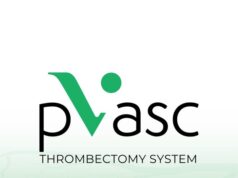Thomas Maldonado (New York University Medical Center, New York, USA) speaks to Vascular News at the 2022 Vascular Interventional Advances (VIVA) conference (31 October–3 November, Las Vegas, USA) about how new interim data from the STRIDE study will impact treatment options for acute limb ischaemia (ALI) patients.
The STRIDE study, Maldonado explains, is designed to assess the safety and efficacy or the Indigo aspiration system (Penumbra) for the treatment of ALI. He notes that there are a “variety of techniques” available to treat this condition, with open surgery being regarded as the “gold standard”. Other techniques—such as catheter-directed therapy and lytic therapy—have become “important tools,” he adds, while noting that lytic therapy has its risks, often requiring a second visit to the operating room and a longer hospital stay.
According to Maldonado, the advent of mechanical thrombectomy, and specifically the Indigo device, allows for patients to be treated in a single session. Based on the first results from STRIDE—including a high technical success rate and positive data on patient satisfaction, quality of life, and cost—Maldonado expresses his belief that Indigo can now be considered a “first-line treatment” for ALI.
Video Attributions
Footage:
VIA Films/stock.adobe.com













